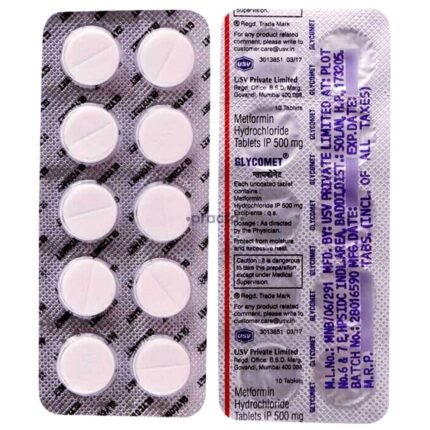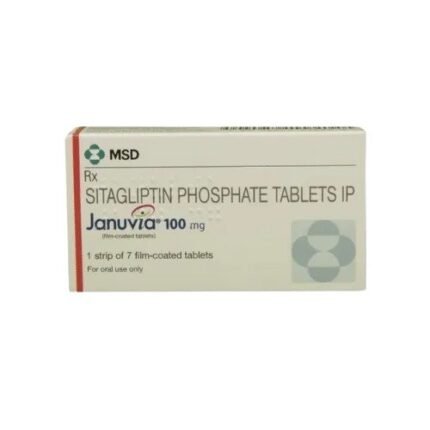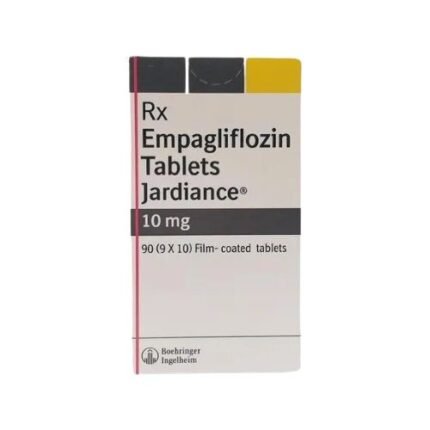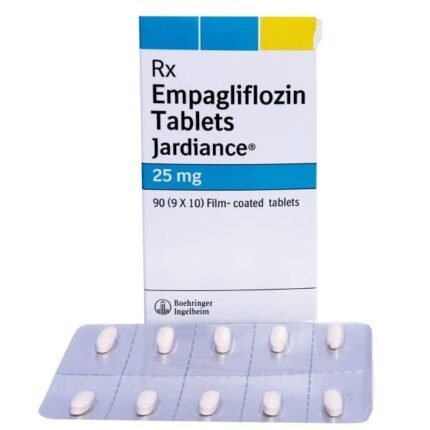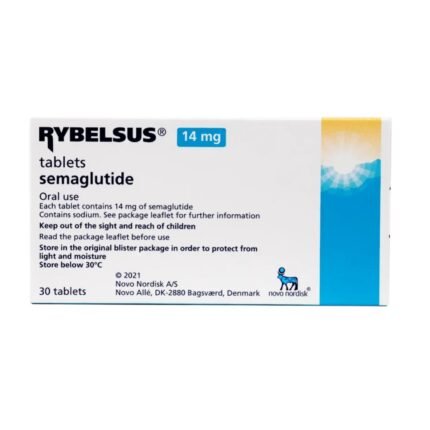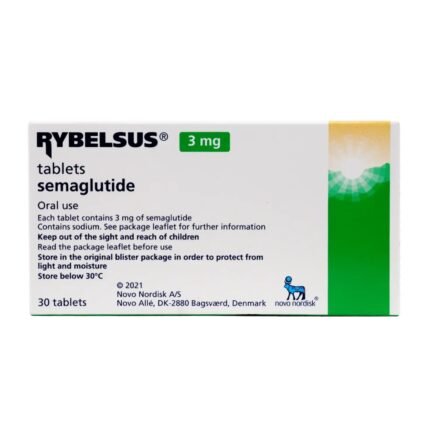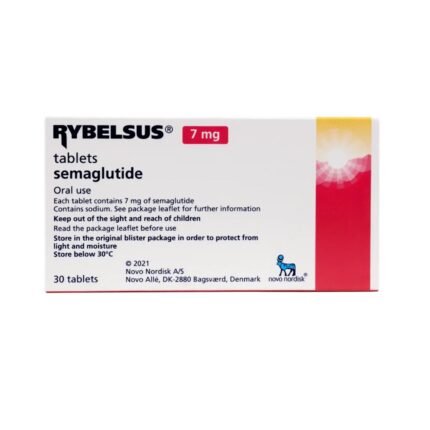Diabetes Medications: Control Blood Sugar and Live Healthier
Diabetes is a chronic condition that affects how your body turns food into energy. If not managed properly, it can lead to serious complications like heart disease, kidney failure, vision problems, and nerve damage. Fortunately, with the right diabetes medications, you can control your blood sugar levels and lead a full, active life.
This guide will walk you through the different types of diabetes, the best medications, and how to manage the condition effectively.
Glycomet 500 mg Tablets (Metformin)
Price range: $70.00 through $250.00Januvia 100 mg Tablet (Sitagliptin)
Price range: $65.00 through $190.00Januvia 25 mg Tablet (Sitagliptin)
Price range: $59.00 through $172.00Januvia 50 mg (Sitagliptin) Tablet
Price range: $62.00 through $172.00Jardiance 10 mg Tablet (Empagliflozin)
Price range: $70.00 through $280.00Jardiance 25 mg Tablets (EMPAGLIFLOZIN)
Price range: $70.00 through $300.00Semaglutide 14 mg (Rybelsus) Tablet
Price range: $285.00 through $810.00Semaglutide 3 mg (Rybelsus) Tablet
Price range: $275.00 through $800.00Semaglutide 7 mg Tablet (Rybelsus)
Price range: $280.00 through $805.00What Is Diabetes?
Diabetes occurs when your body either doesn’t make enough insulin or can’t use insulin properly, resulting in high blood glucose levels.
🔹 Types of Diabetes:
-
Type 1 Diabetes: Autoimmune condition; the body does not produce insulin
-
Type 2 Diabetes: Most common; insulin resistance or deficiency
-
Gestational Diabetes: Occurs during pregnancy
-
Pre-diabetes: Higher-than-normal blood sugar, not yet diabetes
Symptoms of Diabetes
-
Frequent urination
-
Excessive thirst or hunger
-
Fatigue
-
Blurred vision
-
Slow healing of wounds
-
Unexplained weight loss (Type 1)
Top Diabetes Medications
💊 1. Oral Antidiabetics
a. Biguanides
-
Example: Metformin
-
Use: First-line treatment for Type 2 diabetes
-
Action: Reduces glucose production in the liver
b. Sulfonylureas
-
Examples: Glipizide, Glimepiride
-
Use: Stimulate the pancreas to produce more insulin
c. DPP-4 Inhibitors
-
Examples: Sitagliptin (Januvia), Vildagliptin
-
Use: Increase insulin and reduce glucose production
d. SGLT2 Inhibitors
-
Examples: Dapagliflozin, Empagliflozin
-
Use: Remove glucose via urine; also protect the heart and kidneys
e. Thiazolidinediones (TZDs)
-
Examples: Pioglitazone
-
Use: Improve insulin sensitivity
💉 2. Injectable Medications
a. Insulin Therapy
-
Types: Rapid-acting, long-acting, pre-mixed
-
Used for: Type 1 diabetes, some Type 2 cases
-
Examples: Insulin Glargine, Insulin Lispro, Human Insulin
b. GLP-1 Receptor Agonists
-
Examples: Liraglutide, Semaglutide
-
Use: Stimulate insulin release, reduce appetite, aid weight loss
Top-Selling Diabetes Medicines Online
| Medication | Form | Use |
|---|---|---|
| Metformin 500mg/1000mg | Tablet | First-line oral treatment |
| Janumet (Sitagliptin + Metformin) | Tablet | Dual therapy for Type 2 |
| Glimepiride 2mg/4mg | Tablet | Boost insulin secretion |
| Dapagliflozin 10mg | Tablet | Lowers blood glucose |
| Human Mixtard Insulin | Injection | Blood sugar control |
| Liraglutide (Victoza) | Injection | Injectable for Type 2 |
How Diabetes Medications Work
-
Reduce glucose production in the liver (e.g., Metformin)
-
Increase insulin release from the pancreas (e.g., Sulfonylureas)
-
Improve insulin sensitivity in muscle and fat (e.g., Pioglitazone)
-
Lower glucose absorption in kidneys (e.g., SGLT2 inhibitors)
-
Replace insulin with injections for Type 1 or severe Type 2
Side Effects of Diabetes Drugs
| Drug Class | Possible Side Effects |
|---|---|
| Metformin | Nausea, diarrhea, metallic taste |
| Sulfonylureas | Hypoglycemia (low sugar), weight gain |
| DPP-4 Inhibitors | Headache, sore throat, joint pain |
| SGLT2 Inhibitors | UTI, dehydration, yeast infections |
| Insulin | Hypoglycemia, injection site irritation |
| GLP-1 Agonists | Nausea, vomiting, weight loss |
Lifestyle Tips for Managing Diabetes
-
🍽️ Follow a diabetic-friendly diet (low sugar, high fiber)
-
🏃 Exercise regularly to improve insulin sensitivity
-
📋 Monitor blood glucose daily
-
💤 Get adequate sleep and reduce stress
-
🚭 Avoid smoking and limit alcohol
FAQs About Diabetes and Treatment
Can diabetes be cured?
No, but Type 2 diabetes can be reversed in some cases with lifestyle changes and early treatment.
Is insulin safe for long-term use?
Yes, insulin is essential for many and safe when used correctly.
Can I take oral medications and insulin together?
Yes, many Type 2 diabetics benefit from a combined approach.
How often should I check my blood sugar?
This varies, but most people with diabetes check 1–4 times per day, depending on the treatment plan.
Conclusion
Managing diabetes doesn’t have to be overwhelming. With the right medication, lifestyle support, and monitoring, you can maintain stable blood sugar and avoid complications. Whether you’re newly diagnosed or looking to optimize your treatment, we offer a wide range of trusted diabetes medications online, delivered to your doorstep.
Take control of your health—shop our diabetes care range today.


